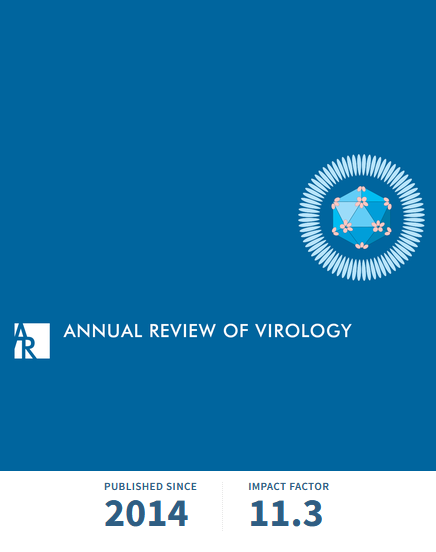The Ecology of Viral Emergence.
IF 8.3
1区 医学
Q1 VIROLOGY
引用次数: 15
Abstract
The coronavirus disease 2019 (COVID-19) pandemic has had a profound impact on human health, economic well-being, and societal function. It is essential that we use this generational experience to better understand the processes that underpin the emergence of COVID-19 and other zoonotic diseases. Herein, I review the mechanisms that determine why and how viruses emerge in new hosts, as well as the barriers to this process. I show that traditional studies of virus emergence have an inherent anthropocentric bias, with disease in humans considered the inevitable outcome of virus emergence, when in reality viruses are integral components of a global ecosystem characterized by continual host jumping with humans also transmitting their viruses to other animals. I illustrate these points using coronaviruses, including severe acute respiratory syndrome coronavirus 2, as a case study. I also outline the potential steps that can be followed to help mitigate and prevent future pandemics, with combating climate change a central component. Expected final online publication date for the Annual Review of Virology, Volume 9 is September 2022. Please see http://www.annualreviews.org/page/journal/pubdates for revised estimates.病毒出现的生态学。
2019冠状病毒病(新冠肺炎)大流行对人类健康、经济福祉和社会功能产生了深远影响。我们必须利用这一代人的经验来更好地理解新冠肺炎和其他人畜共患疾病出现的过程。在此,我回顾了决定病毒为什么以及如何在新宿主中出现的机制,以及这一过程的障碍。我表明,对病毒出现的传统研究具有固有的以人类为中心的偏见,人类疾病被认为是病毒出现的必然结果,而事实上,病毒是全球生态系统的组成部分,其特征是宿主不断跳跃,人类也将病毒传播给其他动物。我用冠状病毒,包括严重急性呼吸系统综合征冠状病毒2,作为一个案例研究来说明这些观点。我还概述了可以采取的潜在步骤,以帮助缓解和预防未来的流行病,其中应对气候变化是一个核心组成部分。《病毒学年度评论》第9卷预计最终在线出版日期为2022年9月。请参阅http://www.annualreviews.org/page/journal/pubdates用于修订估算。
本文章由计算机程序翻译,如有差异,请以英文原文为准。
求助全文
约1分钟内获得全文
求助全文
来源期刊

Annual Review of Virology
VIROLOGY-
CiteScore
19.40
自引率
0.90%
发文量
28
期刊介绍:
The Annual Review of Virology serves as a conduit for disseminating thrilling advancements in our comprehension of viruses spanning animals, plants, bacteria, archaea, fungi, and protozoa. Its reviews illuminate novel concepts and trajectories in basic virology, elucidating viral disease mechanisms, exploring virus-host interactions, and scrutinizing cellular and immune responses to virus infection. These reviews underscore the exceptional capacity of viruses as potent probes for investigating cellular function.
 求助内容:
求助内容: 应助结果提醒方式:
应助结果提醒方式:


